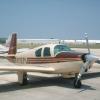Leaderboard
Popular Content
Showing content with the highest reputation on 05/07/2019 in all areas
-
Your Governor may not be online at 1800 rpm. if it has been in the past I would be getting thing checked out till you found it. You can find what RPM you Gov checks in my pulling you Propeller knob all the way out, then pushed in 1/4 inch at idle. Then from idle raise RPM till it dumps an reduced RPM for you. Missile an Rocket drivers, don’t try this at home!!!4 points
-
This is aviation... you need to raise the bet. $10,000 is the kiddie table at this casino4 points
-
Thanks John, This year, @Seth is at the helm and promises to have a fabulous Mooney Summit VII. I am sure he will be emailing everyone shortly where we are with everything. Everyone is working towards getting a larger venue In PCB to accommodate more people, as we have a huge wait list again. @Hank is soliciting raffle and silent auction donations to help fund our charity. Unlike COPA, we are not owned by Mooney and have to grovel for funding, and one of the reasons we have been successful is we do not charge for the event, but ask everyone to donate what they feel the value is. Some have really impressed us with their valuation, while just a few have taken advantage of the generous ones. Moving the venue would not be voted for by @rocketman, as he donates 17 condos for use by SME's and those of his choosing, along with his 2 beach houses. FIgure in the rent for these and we would have an additional 10K in costs. I wonder how the Cirrus's will handle avoiding landing in Lake Ponchatrain for their convention?3 points
-
During our last visit to Marathon, I filmed the approach from the cockpit of the Mooney M20F. Most of the instruments, including my Aspen PFD and the Garmin GTN 750 are visible. Due to the later evening, and the low sun, the outside view is ok, but could be better. To make the visual approach against the sun easy, I selected the visual approach to runway 25 in my Garmin GTN750. With this setup, I got an ILS-like vertical and lateral deviation indication on my Aspen PFD. Also you can see on the Aspen the AOA function and the synthetic vision.2 points
-
Only certain rocks are older than I am but when I returned to flying in 2011 I dug out 2 H10-30 headsets that I had had from the '70s. DC refurbished them to better than new condition for about $100. They apologized for charging me but they were 30 years out of warranty...2 points
-
Who needs such grief? Stick with David Clark, Worcester MA, USA. Built for profession pilots to be practically indestructible. A company that takes care of its customers. In fact one of the very best companies I've ever dealt with. https://www.davidclarkcompany.com/2 points
-
If the headsets where being sold with a Bose warranty that would have been very clear in the ebay posting. But instead, I'll assume the only representation of a warranty was merely that they could be returned within 30 days. At least that is what I am familiar with from having viewed the "Brand New" Bose headsets. There is nothing unusual about buying "Brand New", even un-opened merchandise without a manufacturer warranty on Ebay - in fact that is the norm. That's the trade off we make in getting the discounted pricing and have to ask if it's really worth the savings before rolling the dice. But it really makes checking them out promptly on receipt very important. Frustrating as it is, hopefully you'll still be $ ahead with 3 that are okay and all last past the normal warranty period.2 points
-
2 points
-
Ebay does have a 30 day policy that for whatever reason was not adhered to. We are all busy professionals and should take our time constraints into account when entering into a purchase like this. If we do not or cannot make the time to check out the functionality of something we buy within the posted "rules", should we be mad at ourselves or should we demand a policy change from Ebay to accommodate our busy schedules? I dont mean to beat up on you, just want to sort out the facts that this was ordered well before your need to examine merchantability or fitness for a particular purpose by you, something one should do whenever they purchase something I believe.2 points
-
That always seems to happen when flying over unfavorable terrain or open water. My strategy for engine failure over a cloud deck would be to come through it with as much energy as possible to use to navigate to my landing site.2 points
-
Getting access to Coy’s STCs is kind of like a holy grail... for some reason? His organization did some really good technical work. Technical customers were technically happy... I got the opportunity to fly the F/J last August to KOSH... It was a highly updated version of the M20F... The coolest thing about working with David... No hidden details... No surprises... Solid work... strong work ethics makes a difference... A forever M20C would love to have an updated Sabremech cowl... Improved cooling, additional speed, much better looks, matches the spinner to the cowl for Best aero... PP thoughts only, I got to see David’s cowl on Bob’s E... While down in FL. Best regards, -a-2 points
-
USAA. Can’t say enough good things about them. Great service and rates, no aviation exclusion.2 points
-
2 points
-
2 points
-
You definitely need the carb'd O-360-A1D - no IO-360 in the type certificate for a C model.1 point
-
By definition, the O-360-A1D is NOT fuel injected; that would change nomenclature to IO- . . . .1 point
-
We just chased down this problem. After much trial and error it was not the master, nor the alternator but the voltage regulator.1 point
-
Sure sounds fishy... hard to believe an accountant would have time to be browsing ebay and purchasing headsets in March! Just use the 3 working Bose headsets for passengers and get yourself a Halo. You'll be happier that way in the end and you can pretty much buy the Halo for the price of bench testing that head squeezer anyway.1 point
-
I had this problem...first noticed it when I started flying my (new to me) 1982 J at night and the panel lights were dimming as the ammeter needle fluctuated. I posted about it and it turned out to be this:1 point
-
Is the dealer authorized? If so it doesn’t matter if the headset was made in 1812. The sales receipt sets the start of the warranty. If you are planning on going to OSH I’d give them hell. I own two sets of a20’s but I’m not a fan of Bose as a company.1 point
-
Can't wait to see them. I had hector do mine many years ago and they still look great.1 point
-
Before spending time effort or dough... At least be aware of Cies digital sensors... In the event of going all Digital, you may want the extra accuracy of the new sensor type to go with the new engine monitor types that are available... If staying old style... that is Good too! Many of us are familiar with cleaning, and calibrating Mooney fuel systems... most have added a back-up system like a FF meter and totalizer... relying on the old fuel level gauges without back-up, increases your risk of a fuel mismanagement challenge... Pp thoughts intended to share what others are doing around here... Best regards, -a-1 point
-
Over the years I've had them for Auto, renters, homeowners, and life insurance. Even when I was selling life insurance I couldn't match what USAA had.1 point
-
1 point
-
I don’t think so. At least not the r15300 adjustable in the field... however, I’m madly looking it up because that would be great. My IA also said it wasn’t adjustable... but I’ll still look it up.1 point
-
1 point
-
Airbags were one of the killer apps that drove the economy of scale to make MEMs accelerometers cheap. There were all kinds of crazy MEMs devices being developed in the 80s when the technology was first becoming more widely available, but MEMs gyros and accelerometers now give of us accurate AHRS systems for <$15. It's crazy. In the late 80s I worked on a DARPA program where we used GPS and a strap-down inertial navigator in a Gulfstream I to generate aux data for a radar imaging system, and it was a big rack-mounted system that cost a massive amount of money. My stratux has all of that now, an AHRS and a WAAS GPS receiver, for <$50 and it's tiny and it'll run for hours on a cheapie battery. Crazy stuff. We have constant NOTAMs out here for GPS outages because they do interference and jamming testing and probably a lot of other crazy stuff with the system. I've only personally noticed a loss of GPS once, and they'd like people to notify ATC if they do lose GPS because it helps them with the testing.1 point
-
Your voltage during flight is your regulator voltage, it tells you nothing about the battery (and it sounds a little on the low side for normal weather). Your voltage on the ground with the alternator off might tell you something about your battery, but you'd need to know the exact load for it to be informative. Your voltage with the battery unloaded will not tell you what its total capacity is, but it will tell you what percentage of that capacity is charged. The only way to truly determine the battery capacity is to do a capacity test--charge until it's at 100%, discharge it until it's at 50% charge and record the total current. If you have a 40 Ah battery, it should take 20 Ah to discharge it to 50%. If it only takes 10 Ah, that means your battery has lost half its capacity.1 point
-
Hopefully you've gotten enough clarification, but if you haven't... Allow me to geek out for a moment. The gyros that are used by the modern GA glass panels (be it G1000 or all the way down to the G5) are MEMS gyros - MicroElectroMechanical Systems. They're basically gyros in a computer chip, but they actually do move - They're vibrating structure gyros. Basically, electric currents "excite" a small moving part inside the chip so it vibrates, and sensors in the chip can tell when and how it moves. However, they're not perfect. Like anything else, there is a tolerance... And those errors need to be corrected. Some of that can be done with circuitry, some can be done with software. But, it needs more inputs to know what "correct" is. Using these gyros plus accelerometers (which are also MEMS), magnetometer, GPS, and pitot/static, the unit can correct any errors. If you lose GPS, it can still provide an attitude solution, but after 50-100 hours of flying it might no longer be quite correct. Using circuitry and software, we can essentially teach it physics, and have it use all the inputs available at the time to come up with an attitude solution. The known relationships between attitude, AoA, lift, and the airplane's path through the sky allow all these things to correct each other. This is called a Kalman Filter. Pretty cool stuff! And one of the biggest things to enable it all was the development of air bags for cars in the late 80's and early 90's, as that is what provided the funding to develop the MEMS accelerometers. Also, BTW... Why would one be any more likely to lose GPS signal "out west"? It's satellite, so unless you're flying deep down in pretty narrow valleys, I don't think you'd have any problem with getting good enough signal from enough satellites to have a good position. The existence of RNAV(GPS) approaches into places like Aspen and Jackson Hole demonstrates that.1 point
-
Except at Burger King you can have it your way..... Bendix King.... well lets say they show you previews of whats on the menu but you will never know if it's going to be served.1 point
-
If you're re-doing your headliner, you might consider getting some paint for plastic and repaint your trim. When installing mine, and not painting the trim, it stuck our like a sore thumb. There are some shops in our area that can screen print small stuff like that and looks like factory. Also, don't screw in the back left screw in too far as it will lock up yuur air vent mechanism. Don't ask me how I know. Don1 point
-
That sound is the inlet valve bouncing on its seat. It will sooner or later ruin the valve. If my memory works, it costs about .3 AMU. Plus installation.1 point
-
If anyone talks to Cory tell him I can't count the number of 14 hour duty days (16 hrs hotel to hotel) I had with the 121s when I was working. Long days and flying go together. Its part of the life you accept. Everything has trade offs.1 point
-
Was the bottom end job due to the gear up landing an IRAN or a full OH? Your engine is beyond the recommended TBO of 2,000 hours or 12 years. The least expensive step in the short run is to either IRAN your cylinders or exchange them for overhauled cylinders and carry on. Do not expect them to last as long as new cylinder assemblies. The problem with this piecemeal approach with your engine is that when you go to sell the airplane, potential buyers are going to be thinking that they’re going to be stuck with the Major Overhaul that you and the former caretakers didn’t want to pay for. The price that you can get for the airplane, even your ability to readily sell it, will be impacted by this. This is one of the challenges of owning an airplane. Some people buy airplanes, use them without tackling the upkeep issues (avionics, paint, interior, engine, etc.) and the aircraft steadily diminishes in value. Eventually it costs more to refurbish and update the airplane than it is worth. The airplane and it’s owner reaches the end of the road. Other owners assume the caretaker role. They will accept the costs associated with upgrading and maintaining their airplane with an eye to the future. The decisions they make will be tempered by the fact that the airplane will eventually pass on to another caretaker and that it needs to have value in order for that to occur. These airplanes are better maintained, in nicer condition, typically sell quicker and for a higher price than their counterparts. I believe that a wise owner thinks about these decisions and considers what will make the airplane more enjoyable today and more desirable to the next owner.1 point
-
Two really common TC types... 1) Lower cost... J type... 2) wider range... K type... Typically when using a thermocouple on planes, we see K type a lot... OilT is most often done by using a thermistor... variable resistance with temp... The advantage of a thermocouple... It is a tiny point where the two wire materials come together... that point is the sensor. What it gets housed in is a protective layer... it is independent of the ship’s voltage... More PP thoughts... -a-1 point
-
1 point
-
1 point
-
Each application takes a lot of time to become familiar with all of its utility. I haven't taken a lot of time to become familiar with Foreflight, so I don't know it very well. I have spent a lot of time with Garmin Pilot, so know it very well. It is an excellent app. I can file IFR in less than a minute after putting in the flight plan. A 360° view of best glide range is shown on the Map page. I do have the Jeppesen approach plate overlay, and it works well, but I primarily run the approaches using the Aera 796 on the yoke with iPad, G500 (soon to be the G500TXi), and GTN 750 as backup. One of the reasons for staying with one manufacture is that you can count on everything interfacing well together. Personally, while I'm glad there is some competition for Garmin to keep their prices somewhat in check, the quality of their products and how much I like their human interface will keep me coming back to Garmin for any new avionics I want. Now, if they would only certify their GFC 600 for the Mooney...1 point
-
What happens is the rod from the sampling cup nicks the o-ring around the piston as it's used to push the piston up. Once nicked, you have a leak and many of have found themselves grounded till they replace that small o-ring in the gascolator. You might get away with it a 100 times without damaging the o-ring and then when you have an important departure time to meet end up grounding yourself nicking the o-ring. I live in CA were we have the most stringent rules but I continue to drain the gascolator the first flight of the day and sump the tanks before every flight - regardless whether or not I take on gas. I am just not going to be that pilot that took off and missed the last chance to catch an issue with his fuel whether it be water or contamination from vandalism. It take all of a couple minutes and enables me to be checking the security of the gear, brakes and landing gear doors etc. while I do it. Yes the chances are very slim, but the consequences are to severe IMO to pass up the final opportunity to prevent a power loss on departure.1 point

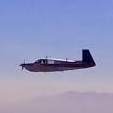







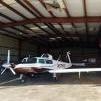

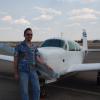
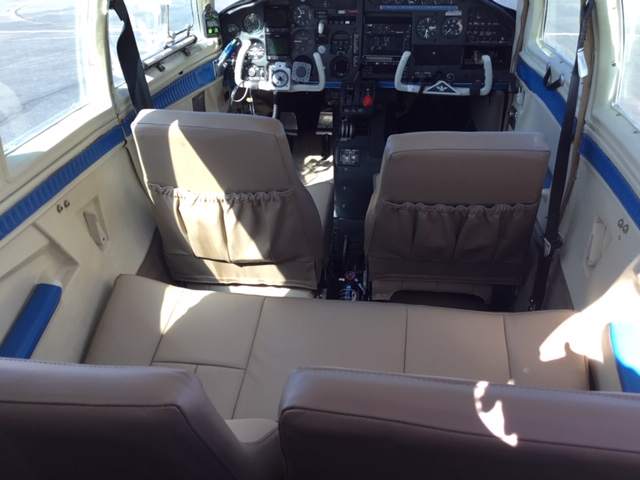
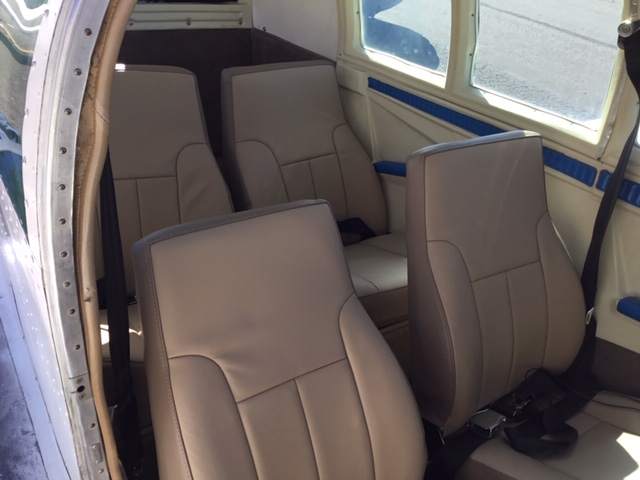
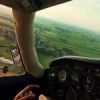

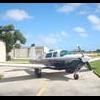
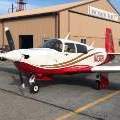
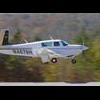
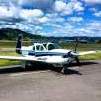
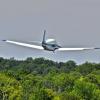


.thumb.png.7c67574d7b28f67b0b4a17760919b1ac.png)
